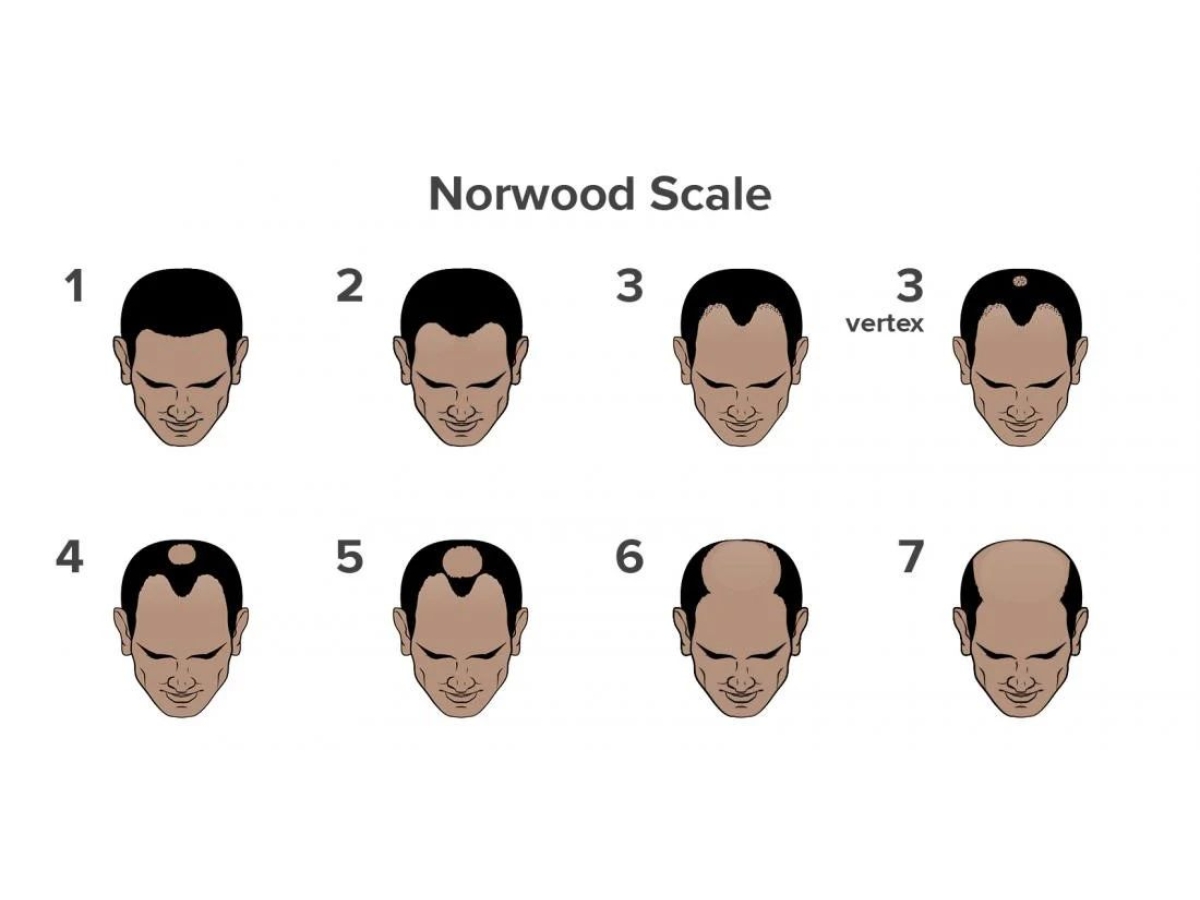What is Causing Your Hair Fall? Take This Scientifically Backed Hair Loss Quiz
May 28, 2025

PNN
New Delhi [India], May 28: Hair fall can feel heartbreaking. Seeing more and more strands on your pillow or hairbrush each day leaves a huge dent in your confidence. The truth is, hair loss often hits our emotional well-being hard. It affects how we socialize or see ourselves.
We believe that excessive hair fall is usually a symptom of something deeper. Your body could be trying to signal an internal issue, ranging from a hormone imbalance to a vitamin deficiency. This is why blindly guessing the cause of your hair loss does not work. Self-diagnosis can miss the real problem, which will leave you stuck with the wrong "solution." In this blog we will discuss how a structured approach, like a hair loss quiz, might just be the thing you need.
Hair Test Questions:
Traya's Free Online Hair Test is designed by dermatologists, trichologist, Ayurvedic doctor, and nutritionist working together to create an expert blend of questions to find out about your hair and overall health. These questions cover different aspects such as hair quality, dandruff conditions, hair goals, family medical history, visual representations of their hair, any detected illnesses, fluctuations in weight, recent surgeries, heavy medication, daily energy levels, gut health, stress levels, sleep patterns, thyroid imbalances, blood pressure, and scalp conditions.
Rounding off, we also ask for a picture to help diagnose the problem as accurately as possible. Your diet controls the quality & quantity of hair and your gut health is of the highest importance.
If you suffer from any issue like acidity, constipation, diarrhea, gas and/or bloating then check out this quick Gut health Test.
These questions ensure that the treatment provided by Traya is personalised and tailored to each individual's specific condition. Traya aims to directly address the root causes of hair issues and provide effective solutions accordingly.
Why Is My Hair Falling?
Hair fall is a normal part of the natural growth cycle. When you shed significantly more, you may experience excessive shedding or hair loss (telogen effluvium). Many factors can trigger unusual hair fall:
Genetics/Hormones (Androgenic Alopecia): The most common cause is hereditary pattern baldness. In men this causes a receding hairline and bald spots on the crown; in women it causes overall thinning (female pattern hair loss). This form is driven by androgens (male hormones) like DHT and cannot be prevented, though it can be treated.
Hormonal Changes: Pregnancy, childbirth, and menopause can cause temporary thinning in women. Conditions like polycystic ovary syndrome (PCOS) or thyroid disease also disrupt hair growth. For example, changes in estrogen or thyroid hormones can push hairs into a shedding phase.
Stress and Illness (Telogen Effluvium): Severe emotional or physical stress (high fever, surgery, major illness, crash diets, or trauma) can suddenly push many hairs into the resting (telogen) phase, causing handfuls of hair to fall out weeks later. High stress from events like surgery, childbirth or grief is a classic trigger of diffuse shedding. Typically, this type of hair fall is temporary and reverses once the trigger resolves.
Autoimmune Conditions: Alopecia areata causes the immune system to attack hair follicles, leading to round bald patches on the scalp (and sometimes eyebrows or beard). This can be sudden, and hair may regrow unpredictably.
Medications and Treatments: Drugs for cancer (chemotherapy), arthritis, depression, heart conditions, and high blood pressure can cause hair loss. Chemotherapy causes an abrupt anagen effluvium (rapid loss of growing hairs). Some vitamins or supplements in excess (like vitamin A) can also lead to shedding.
Hairstyles and Hair Care: Traction alopecia results from chronic tension on the hair (tight ponytails, braids, extensions) that eventually damages follicles. Harsh chemical treatments (bleaching, perms, relaxers) or hot styling tools can weaken hair and cause breakage. Minor everyday friction (pillow rubbing, scalp scratching) usually isn't a big factor, but extreme styling practices are avoidable causes of thinning.
These are some of the most common reasons for hair fall. Other factors might include nutritional deficiencies (iron, zinc, biotin, protein), rapid weight loss, and scalp infections (ringworm/tinea capitis). In many cases, multiple factors work together (for example, genetics plus stress). A doctor or dermatologist can help pinpoint the cause or sometimes a simple hair quiz can give clues.
Traya and our approach to Hair Loss Treatment In India:
Traya has always believed in a three-fold approach towards hair loss. The three folds include:
Ayurveda: Traya wholeheartedly believes that hair loss is reversed when your entire body cleanses itself. To aid in that, over half of the Traya products include Ayurvedic ingredients like Bhringraj, Ashwagandha and Sankpushpi.
Dermatology: To assist the Indian Homeopathic Nuske (prescriptions), we have multiple products that are approved by medical science. These include Minoxidil, Finasteride and Ketoconazole.
Nutrition: As aforementioned, Traya believes in a holistic approach. We also have a personal hair coach guiding you step by step in your diet.
Your hair loss has a reason. Traya finds it and fixes it the right way!
Read more about Men's Hair loss Statistics, and Women's Hair loss Statistics.
Case Examples:
Review 1: Amazed by the results
I have been prescribed a combination of Minoxidil, DHT-blocker, and Procapil, and I need to say that it has been working wonders. Especially Traya's Minoxidil 5% serum has become part of my daily routine, and I am thrilled with the results. My hair is thicker now, and I can already see baby hairs growing in areas where I had lost hair. It has given me hope that I can maintain a full head of hair. My receding hairline has also visibly improved, and my hair feels thicker and healthier. I highly recommend it!
- Vaibhav Sharma
Review 2: Worth Investing in for every woman with hair loss
Traya's Minoxidil 2% for women has been a lifesaver for me. My hair was thinning, and I was losing confidence daily, but this product has made a huge difference. It is easy to use, and I have noticed less hair fall and increased thickness. While it definitely takes time and is not an overnight fix, it is a product worth investing in if you want to combat female pattern baldness. Highly recommended for women facing hair loss.
- Shruti
After reading through all of this, if you feel like you are ready to discover what your hair is trying to tell you, take control now. Do not leave it to guesswork. You can Take Traya's Hair Test, a quick, free assessment that has helped thousands pinpoint their hair fall causes, and kick-start a targeted recovery plan.
FAQs
Q: How do I know what is causing my hair fall?
A: If you are noticing excessive hair loss, the best way to identify the cause is through a proper evaluation. You can start by taking an online hair loss quiz or seeking a consultation with a hair specialist. Essentially, you will need to look at factors like your recent health changes, stress levels, diet, and family history. Many causes of hair fall are not obvious without a thorough check (for example, you might not realize a thyroid issue or vitamin D deficiency is behind it). A good approach is to get a diagnosis, either via a quiz that covers all bases or by visiting a dermatologist who can run tests. Remember, multiple factors can contribute to hair loss at once, so a structured assessment helps ensure nothing is overlooked. Once you know the cause, be it hormonal, nutritional, stress-related, or genetic, you can address it correctly instead of trying random remedies.
Q: How accurate are hair tests?
A: An online hair test or quiz can be quite accurate in pinpointing likely causes of hair loss, especially if it is detailed and backed by real patient data. Of course, it relies on your honest inputs, so accuracy also depends on how truthfully and thoroughly you answer the questions. A well-designed hair quiz (like Traya's) uses an algorithm developed by doctors to correlate your answers with common hair loss triggers. These tests can identify patterns, such as "your symptoms suggest stress-related hair fall" or "signs point to hormonal hair loss." Many people are surprised at how spot-on the analysis can be. That said, think of online hair tests as a starting point. They give a probable diagnosis. The best platforms will have qualified doctors review your quiz results for added accuracy. In some cases, you may be advised to get follow-up lab tests (for example, checking iron or thyroid levels) to confirm the quiz findings, which is a good thing, because it means the system is thorough. So, while an online hair test is not a 100% definitive medical verdict, it is often accurate enough to guide you in the right direction. It is a convenient, credible way to understand your hair fall, and when paired with expert consultation, it becomes a powerful tool to plan your recovery.
Q: What makes Traya's hair quiz different from others?
A: Unlike fun or generic online quizzes, Traya's quiz is medically informed. It was developed by experts in dermatology, Ayurveda, and nutrition, and aims to uncover the root causes of your hair fall through a structured, diagnostic-first approach.
Q: Why do most hair fall products fail to work?
A: Many products only treat symptoms (like breakage or dryness) without addressing underlying issues such as stress, poor nutrition, or thyroid problems. Without treating the root cause, hair loss usually continues.
Q: How accurate is the quiz in diagnosing hair fall?
A: While not a substitute for a medical diagnosis, the quiz is based on data from over 500,000 users and backed by scientific input from experts. It provides an informed starting point and often highlights causes people overlook.
Q: Can stress really cause hair fall?
A: Absolutely. High stress elevates cortisol levels, which can push hair follicles into the shedding phase (telogen effluvium). In Traya's study, 60% of young men had stress-related hair loss.
Q: Can women take this quiz too?
A: Yes! The quiz is designed for both men and women, and considers female-specific issues like PCOS, postpartum hair loss, and iron deficiency.
(ADVERTORIAL DISCLAIMER: The above press release has been provided by PNN. ANI will not be responsible in any way for the content of the same)









